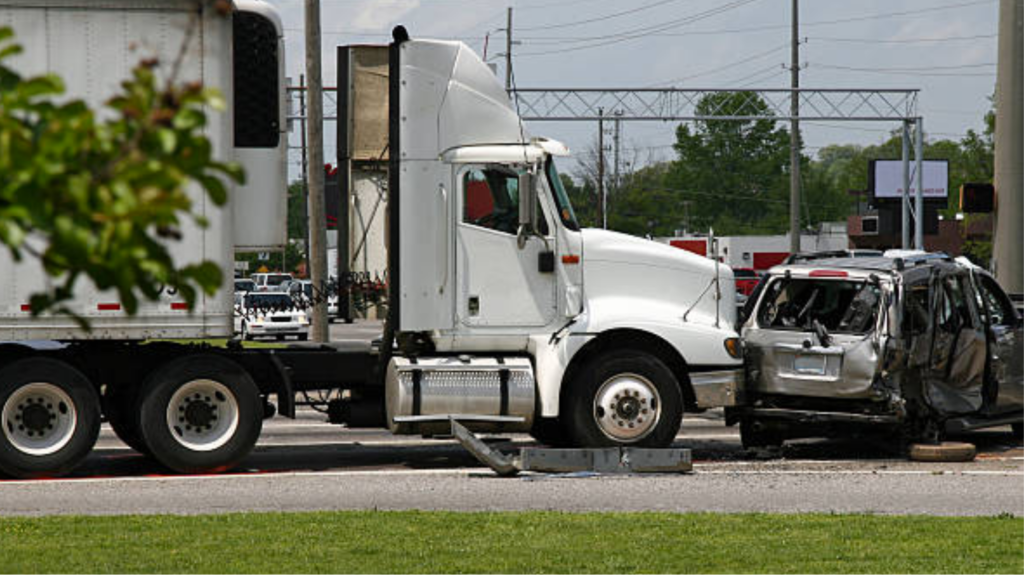- News
- What is Considered a Commercial Vehicle in Michigan, and What Happens if One Hits Me?
What is Considered a Commercial Vehicle in Michigan, and What Happens if One Hits Me?

When Michigan’s no-fault insurance laws changed in 2020, drivers were permitted to choose coverage with Personal Injury Protection (PIP) limits as low as $50,000 or even completely opting out of coverage depending upon their circumstances. The idea was to help Michiganders reduce their car insurance premiums, which have historically been among the highest in the nation.
Of course, sometimes the best of intentions can result in unanticipated and dangerous consequences. As the Detroit Medical Center (among other hospitals and healthcare providers) noted when the no-fault changes were first enacted, “opting for less than full coverage can result in high out-of-pocket medical costs down the road if you are injured in a car crash.” And tragically, that has already happened to numerous Michigan motorists. It’s one of the reasons we always recommend choosing unlimited PIP benefits whenever you buy a car insurance policy. But, regardless of your own PIP limits, if you’re ever unlucky enough to get in an accident with a commercial vehicle, there is perhaps a silver lining you’ll want to know about.
The “Good News” if You’re Hit by a Commercial Vehicle…
Fortunately, if you’re ever involved in an accident with a commercial vehicle, you’ll have a bit less to worry about than you might otherwise. Despite the changes made to Michigan’s passenger car no-fault insurance rules, commercial vehicles are still required to maintain much higher limits on their liability insurance coverage. In fact, many insurers recommend that commercial vehicle owners carry at least $1 million in liability protection. But regardless of insurance company recommendations, the Federal Motor Carrier Safety Administration (FMCSA) requires at least $300,000 in coverage for small trucks transporting non-hazardous household freight… with significantly higher limits for vehicles carrying various other types of cargo. For example, trucks loaded with hazardous materials must have $5 million in liability insurance; general freight carriers need a minimum of $750,000 in coverage; and fuel tankers (like this one that exploded on I-75 last summer) are required to purchase at least $1 million in liability protection.
When Is a Vehicle Considered Legally “Commercial?”
So, how can you tell if you’ve been hit by a commercial vehicle? It should usually be fairly obvious when the vehicle that hit your car is owned by a business, but sometimes can be more challenging to determine. If, by chance, the truck has no identifying information on the driver’s door, you may be unsure if it’s being used for commercial purposes. In such a case, one good way to verify is to check out the driver’s license of the person operating the truck when you exchange information following the collision (as we recommend you do anytime you’re involved in an accident scene). If the driver has been issued a CDL (short for Commercial Driver’s License) that suggests you may be dealing with a commercial vehicle. You’ll find the words “Commercial Driver’s License” clearly marked on the front of the license. Beyond that, another tipoff would be signage on the vehicle or its trailer indicating ownership or operation by a business or commercial enterprise.
Another indicator is if the vehicle has a Michigan Commercial License Plate, which you’ll find on many smaller commercial vehicles such as taxicabs, company-owned pickup trucks, work vans, and ambulances among others. A more complicated (but still accurate) way to tell if a vehicle qualifies as commercial is by checking its Gross Vehicle Weight Rating (GVWR) which is, “the recommended maximum total weight of the vehicle and load as designated by the vehicle manufacturer.” A label indicating the GVWR is typically located on the driver’s side door edge of the tractor (if it’s a semi) and on the front, left side of the trailer it’s pulling. Under Michigan law, a truck is automatically considered a commercial vehicle if its GVWR exceeds 26,000 pounds. There is an exemption for recreational vehicles, but as long as the vehicle is large and not an RV there is a pretty good chance it is a commercial vehicle.
Unexpected Vehicles Can Still Qualify as “Commercial”
It’s usually easy to tell if a truck or semi qualifies as commercial. But according to the Michigan Center for Truck Safety, even smaller vehicles like cars, vans, or pickup trucks can be legally designated as “commercial” if they possess certain characteristics. For instance, a pickup truck used to tow a trailer carrying work products, tools, supplies, professional landscaping equipment, or any hazardous material (such as fuel, paint, fertilizer, solvents) may automatically be considered a commercial vehicle in some circumstances. Finally, many vehicles loaded with materials requiring a hazardous materials placard to warn other drivers that they’re loaded with corrosive, explosive, flammable, radioactive, toxic, or otherwise dangerous substances, are legally designated as commercial.
At this point, it’s important to repeat that being in an accident with any type of vehicle – whether it’s a compact passenger car or a monstrous commercial tractor-trailer – can be traumatic. The bottom line, though, is that whenever you’ve been in a motor vehicle accident, we can help you and will work to get you the most compensation possible. Call us at 855-MIKE-WINS (855-645-3946) or use this form to get in touch. We’re available to help you anytime — day or night!

Content checked by Mike Morse, personal injury attorney with Mike Morse Injury Law Firm. Mike Morse is the founder of Mike Morse Law Firm, the largest personal injury law firm in Michigan. Since being founded in 1995, Mike Morse Law Firm has grown to over 200 employees, served 40,000 clients, and collected more than $1.5 billion for victims of auto, truck and motorcycle accidents. The main office is in Southfield, MI but you can also find us in Detroit, Sterling Heights and many other locations.








